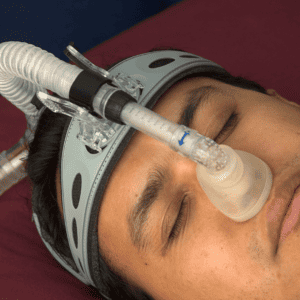Did you know that sleep is mentioned over 100 times in the Bible? That’s right! Sleep is an important part of our lives and has a significant place in biblical narratives.
In today’s fast-paced world, we often overlook the importance of sleep. We live in a culture that values productivity over rest, and we may view sleep as a waste of time. However, the Bible teaches us that sleep is not only essential for our physical health but also for our spiritual well-being.
In this blog, we will explore what the Bible says about sleep and how it can impact our lives. We will delve into both the Old and New Testaments to understand the role of sleep in biblical narratives. We will also examine the connection between sleep and our spiritual health, physical health, and productivity.
So, if you’re struggling to get a good night’s sleep, or you’re curious about what the Bible has to say about rest, then keep reading. You might just be surprised at what you learn!
Sleep in the Old Testament

When we think of the Old Testament, we often focus on the exciting stories of David and Goliath or Moses parting the Red Sea. But did you know that sleep plays a significant role in the Old Testament as well? In fact, the Bible mentions sleeping over 70 times!
One example of sleep in the Old Testament can be found in the story of Adam and Eve. After creating the world in six days, God rested on the seventh day. This act of rest sets a precedent for the importance of rest and sleep in our lives. Later, in Genesis 2:21-22, we read that God put Adam into a deep sleep before creating Eve from one of his ribs.
Another example of sleep in the Old Testament is found in the book of Jonah. When Jonah disobeyed God and attempted to flee from His presence, God sent a great wind and a storm to stop him. As the storm raged on, Jonah fell asleep at the bottom of the boat. However, his sleep was not peaceful, and the sailors had to wake him up to pray for deliverance.
These examples illustrate the significance of sleep in the Old Testament. Sleep is not just a biological necessity, but a spiritual one as well. As we continue to explore the biblical perspective on sleep, let’s keep these stories in mind and remember that sleep is a gift from God that we should cherish and prioritize in our lives.
Sleep in the New Testament

When it comes to sleep, the New Testament has a lot to say. In fact, sleep is mentioned over 30 times in the New Testament, with several stories involving sleep-related events.
One such event is the story of Jesus calming the storm in Mark 4:35-41. In this story, Jesus and his disciples are in a boat when a storm arises, and Jesus is asleep. The disciples wake Jesus up, and he calms the storm, asking them, “Why are you so afraid? Do you still have no faith?” (Mark 4:40).
Another sleep-related story in the New Testament is the story of Peter’s miraculous escape from prison in Acts 12:6-11. Peter was sleeping in prison, bound by chains, when an angel appeared to him, causing his chains to fall off and leading him out of prison.
In addition to these stories, the New Testament also emphasizes the importance of restful sleep. In Matthew 11:28-29, Jesus invites his followers to “Come to me, all you who are weary and burdened, and I will give you rest. Take my yoke upon you and learn from me, for I am gentle and humble in heart, and you will find rest for your souls.”
Similarly, in Ephesians 5:14, Paul writes, “Wake up, sleeper, rise from the dead, and Christ will shine on you.” This passage emphasizes the importance of waking up from spiritual slumber and living in the light of Christ.
Overall, the New Testament teaches us that sleep is an important part of life and emphasizes the importance of restful sleep for our physical, emotional, and spiritual health.
Biblical teachings on Rest

Have you ever considered what the Bible has to say about sleep? While it might not be the first thing that comes to mind when we think about our faith, the Bible actually has a lot to say about the importance of rest and sleep. In fact, the Bible teaches us that sleep is a gift from God that is essential for our physical, emotional, and spiritual well-being.
In Psalm 127:2, we read, “In vain you rise early and stay up late, toiling for food to eat—for he grants sleep to those he loves.” This verse reminds us that it is God who gives us the gift of sleep, and that we should not neglect this important aspect of our lives. When we work too hard and fail to rest, we are not only hurting ourselves, but we are also going against God’s plan for our lives.
Another important teaching about sleep can be found in Mark 6:31, where Jesus tells his disciples to “Come with me by yourselves to a quiet place and get some rest.” Here, Jesus recognizes the importance of rest and solitude in our lives. He knows that we need to take time to recharge our batteries and connect with God in order to live the abundant life that He has planned for us.
Overall, the Bible teaches us that sleep is not only a physical necessity, but also a spiritual one. When we prioritize rest and make time for sleep in our lives, we are honoring God’s gift to us and setting ourselves up for a healthier and more fulfilling life.
Sleep and Spiritual Health

As Christians, we often focus on our spiritual disciplines such as prayer and Bible study, but we may overlook the role that sleep plays in our spiritual well-being.
Firstly, sleep can help us to be more present and focused during our times of prayer and meditation. When we are well-rested, we are better able to quiet our minds and hear from God. On the other hand, when we are sleep-deprived, our minds can be scattered and distracted, making it difficult to connect with God in prayer.
Furthermore, getting enough sleep can help us to live out our faith more consistently throughout the day. When we are tired, we are more likely to give in to temptation and make poor choices. In contrast, when we are well-rested, we are better equipped to resist temptation and make choices that honor God.
Lastly, prioritizing sleep can be a form of self-care and an act of obedience to God. It shows that we trust Him to take care of us even when we are not actively working or serving. When we rest well, we can wake up refreshed and ready to serve God with renewed energy and focus.
As Christians, we should prioritize getting enough sleep for the sake of our physical, emotional, and spiritual health. By doing so, we can better hear from God, make wise choices, and serve Him more effectively.
The Science of Sleep

When you’re asleep, your body is still busy at work. During the first two stages of sleep, your heart rate and breathing slow down, and your body temperature drops. As you move into deeper stages of sleep, your brainwaves slow down even more. This is when your body does most of its healing and restoration, repairing damaged tissues and restoring energy levels.
One of the most important hormones involved in sleep is melatonin. Produced by the pineal gland in the brain, melatonin is responsible for regulating your sleep-wake cycle. It’s released in response to darkness and suppressed by light, which is why it’s important to keep your sleeping environment as dark as possible.
Another important factor in sleep is the neurotransmitter GABA. GABA helps to calm the activity of neurons in the brain, reducing anxiety and promoting relaxation. This is why medications that enhance GABA activity, such as benzodiazepines, are often used to treat insomnia and other sleep disorders.
Overall, getting enough sleep is essential for your physical and mental health. Without enough sleep, your body can’t repair itself properly, and you’re more likely to experience a range of health problems, including obesity, diabetes, and heart disease. So make sure to prioritize sleep as part of your self-care routine, and give your body the rest it needs to function at its best.
The Benefits of a Good Night’s Sleep

Getting a good night’s sleep is crucial for our physical and mental well-being. When we don’t get enough sleep, we can feel sluggish and irritable the next day. But did you know that getting enough sleep has many other benefits? Here are some of the ways that a good night’s sleep can benefit you:
- Improves Memory and Concentration
Have you ever had trouble remembering things or staying focused during the day? Getting enough sleep can help with that! During sleep, our brain consolidates and strengthens our memories, making it easier to remember things. It also helps with concentration and problem-solving skills. - Boosts Immune System
Getting enough sleep helps boost your immune system, making it easier for your body to fight off infections and illnesses. When we sleep, our body produces cytokines, which are proteins that help fight infection, inflammation, and stress. - Improves Mood
Ever feel cranky or irritable after a bad night’s sleep? Getting enough sleep can help regulate your mood and emotions. When we don’t get enough sleep, our brain has trouble regulating our emotions, making us more prone to mood swings and irritability. - Reduces Stress
Sleep can help reduce stress levels, making it easier to cope with daily challenges. When we don’t get enough sleep, our body produces more cortisol, a hormone that’s associated with stress. - Helps with Weight Management
Sleep plays a role in regulating hormones that control hunger and satiety. When we don’t get enough sleep, we may be more prone to overeating and weight gain. Getting enough sleep can help regulate those hormones and make it easier to manage our weight.
Getting a good night’s sleep is crucial for our physical and mental well-being. It can improve our memory and concentration, boost our immune system, improve our mood, reduce stress, and help with weight management. So, make sure you’re getting enough sleep each night, and reap the many benefits of a good night’s sleep!
Tips for a Good Night

Getting a good night’s sleep is essential for our physical and mental health. But sometimes, despite our best efforts, we find ourselves tossing and turning in bed. In this section, we’ll share some practical tips for setting the right sleep environment and developing healthy sleep habits that can help you get the restful sleep you deserve.
- Stick to a consistent sleep schedule: Going to bed and waking up at the same time each day can help regulate your body’s sleep-wake cycle. This means you’ll feel more alert during the day and sleep better at night.
- Create a relaxing bedtime routine: Wind down before bed by doing activities that help you relax, such as reading a book, taking a bath, or practicing deep breathing exercises. Avoid stimulating activities like watching TV or scrolling through your phone.
- Create a comfortable sleep environment: Make sure your bedroom is cool, dark, and quiet. Invest in a comfortable mattress and pillows that support your sleeping posture. Consider using white noise or earplugs if you’re sensitive to noise.
- Avoid caffeine, alcohol, and nicotine: These substances can interfere with your ability to fall and stay asleep. Try to avoid them in the hours leading up to bedtime.
- Limit daytime napping: While a short nap can be refreshing, too much daytime sleep can make it harder to fall asleep at night. If you do nap, keep it to 20-30 minutes and avoid napping too close to bedtime.
- Exercise regularly: Regular exercise can improve the quality of your sleep, but avoid exercising too close to bedtime as it can leave you feeling too energized to sleep.
- Manage stress: Stress and anxiety can interfere with sleep. Try to manage stress through relaxation techniques like meditation, yoga, or journaling.
- Consider seeing a doctor: If you’re consistently having trouble sleeping, it may be a good idea to see a doctor. They can help identify any underlying medical issues that may be affecting your sleep, and recommend treatments to help you sleep better.
Applying Biblical Principles to Sleep

Now that we have explored the biblical perspective on sleep, let us consider how we can apply these principles to our own lives. Here are a few practical ways to incorporate biblical principles into your sleep habits:
First, prioritize rest. In the Bible, sleep is not only seen as a physical necessity but also a spiritual one. Jesus Himself modeled this principle by often taking time to rest and pray. By prioritizing rest in our own lives, we are not only taking care of our physical bodies but also cultivating a deeper spiritual life.
Second, trust God with your worries. The Bible teaches us to cast our anxieties on God because He cares for us. When we lay down to sleep, it can be tempting to let our minds race with worries and concerns. But by entrusting these fears to God, we can find peace and rest in His care.
Third, create a peaceful sleep environment. In the Psalms, David talks about how he can lie down and sleep in peace because he trusts in God’s protection. Similarly, we can create a peaceful sleep environment by removing distractions, such as electronics or clutter, and filling our bedrooms with reminders of God’s love and care.
Finally, strive for balance. The Bible teaches us to seek balance in all areas of our lives, including sleep. While it is important to prioritize rest, we should also be careful not to oversleep or neglect other responsibilities in pursuit of sleep. By seeking balance in our sleep habits, we can honor God and care for our bodies in a healthy way.
In conclusion, by applying biblical principles to our sleep habits, we can not only care for our physical bodies but also cultivate a deeper spiritual life. Let us prioritize rest, trust God with our worries, create a peaceful sleep environment, and strive for balance as we seek to honor God in all areas of our lives.
Overcoming Sleep Disorders

Do you struggle with sleep disorders like insomnia or sleep apnea? You’re not alone. Many people experience difficulties falling or staying asleep, and it can have a major impact on their physical and emotional health. Fortunately, there are steps you can take to overcome sleep disorders and improve your quality of life.
The first step is to establish a regular sleep routine. Try to go to bed and wake up at the same time each day, even on weekends. This helps regulate your body’s internal clock and improve the quality of your sleep. Additionally, avoid naps during the day, as they can disrupt your nighttime sleep.
Another important factor in overcoming sleep disorders is creating a sleep-conducive environment. Make sure your bedroom is dark, quiet, and cool. Use comfortable bedding and invest in a supportive mattress and pillows. If outside noise is an issue, consider using earplugs or a white noise machine to block out distractions.
For those with more serious sleep disorders, seeking medical treatment may be necessary. Consult with your healthcare provider to determine the best course of action. They may suggest therapy, medication, or other interventions to improve your sleep.
Sleep disorders can be challenging, but there are steps you can take to overcome them. By establishing a regular sleep routine, creating a sleep-conducive environment, and seeking medical treatment when necessary, you can improve your sleep and lead a healthier, happier life.
Medical Approaches to Sleep Disorders

If you’re experiencing persistent sleep issues, it’s important to consult a healthcare professional. There are many medical approaches to sleep disorders that can help you improve your sleep quality.
One common approach is medication. Sleeping pills may be prescribed to help you fall asleep faster and stay asleep longer. However, these medications should be used with caution and under the guidance of a doctor, as they can have side effects and can be habit-forming.
Another approach is therapy. Cognitive-behavioral therapy for insomnia (CBT-I) is a type of talk therapy that has been shown to be effective in treating insomnia. CBT-I helps you identify and change negative thoughts and behaviors that may be contributing to your sleep issues.
If you have a medical condition that is causing your sleep problems, such as sleep apnea, your doctor may recommend a medical device, such as a continuous positive airway pressure (CPAP) machine, to help you breathe more easily while you sleep.
In addition to these medical approaches, there are also lifestyle changes you can make to improve your sleep. These include maintaining a regular sleep schedule, avoiding caffeine and alcohol before bedtime, and creating a relaxing sleep environment. Your healthcare provider can help you develop a comprehensive plan to improve your sleep and overall health.
Sleep Conclusion
We have seen that sleep is an essential aspect of our lives, not only for physical health but also for spiritual well-being. Throughout the Bible, we see examples of how God values rest and sleep, and how it can be a tool for our growth and development.
By prioritizing rest and sleep, we can improve our physical and mental health, enhance our productivity, and strengthen our spiritual lives. We can also find peace in knowing that sleep is a gift from God, and by honoring our bodies need for rest, we are glorifying Him.
So, let us take the biblical perspective on sleep seriously and strive to make it a priority in our lives. May we rest well, knowing that we are caring for the temple of the Holy Spirit, and may we wake up refreshed, ready to fulfill God’s purpose for our lives?

